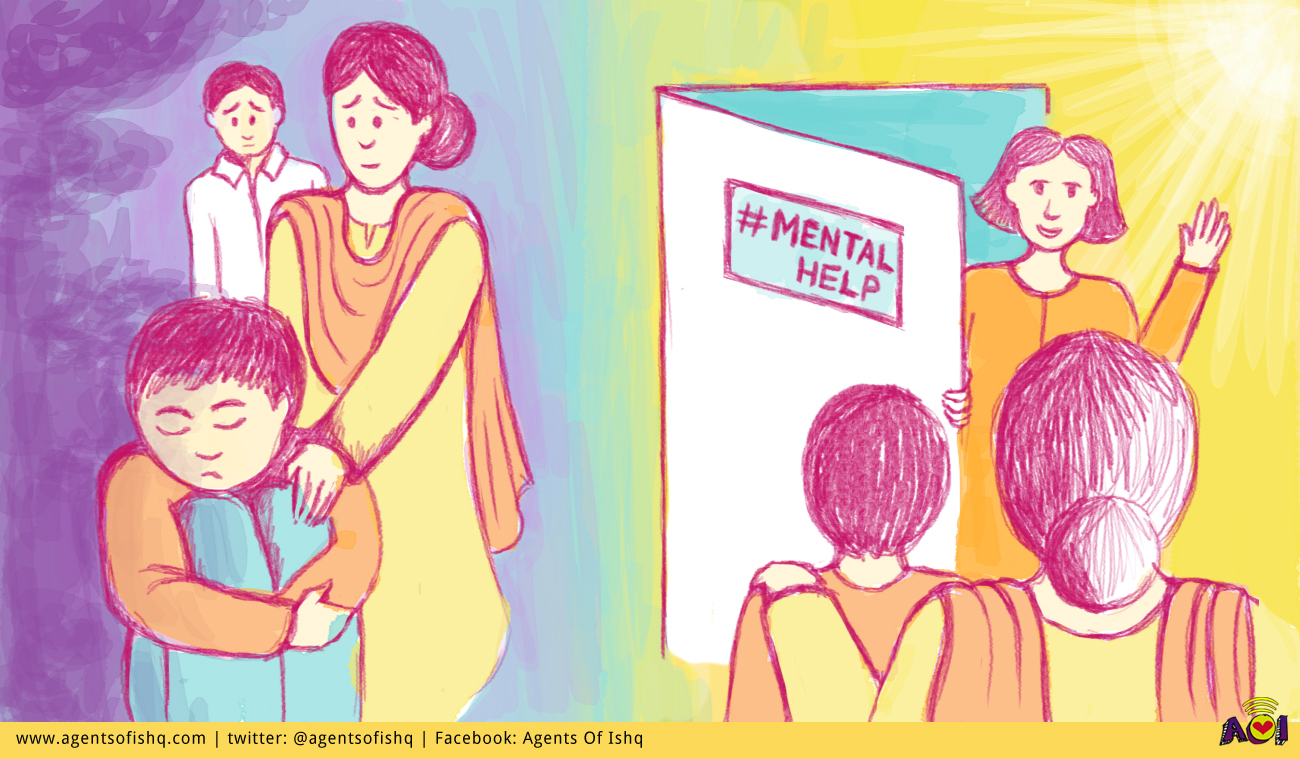The internet is full of bright sayings about the joys of parenting, but being a parent also comes with its own shares of anxieties and fears about if you’re doing everything ‘right’ for your child. In contemporary times, where children live in world of increased competition, unfiltered media, and impractical standards of ‘normalcy’ and pressures of ‘coolnesss’. As a parent, you would read about the growing mental health concerns in society and very likely worry about how you can help your child be resilient and also how to check on their mental health. Here are six simple suggestions to help navigate this complex part of parenthood-
Here are six simple suggestions to help navigate this complex part of parenthood- YOUR WORRY IS NATURAL (but so are the changes)
It is important to understand that as kids grow up, things that stress them out also change. It can go from not being given the star sticker in the kindergarten, to being left out from the popular group in middle school, to being heartbroken in high school. Be mindful of what stage they might be going through, and try to understand their moods according to the stressors. Your worry is valid, but don’t make it overwhelming for yourself or your child. Some sensitivity, a lot of comfort, some ice-cream, and a hug will always help at all stages.
THINK OF YOUR CHILD AS AN INDIVIDUAL (and help them grow into one)
Think about your child not as a defenceless being but as an individual who will go through different experiences, and become their own person. Therefore, be mindful in discussions when they bring in body image concerns, academic achievements, sexuality, gender, and social interactions. Be considerate of their feelings, but also help them understand different sides of everything, and make sure to affirm how they will always be so much more than any label that the society puts on them. All of this will help in giving them the agency of their individuality, and their self-worth. Acceptance and acknowledgement from your side will help them to accept themselves and step into the world as individuals who are proud of their own narrative and context. HELP THEM BUILD TRUST AND BOUNDARIES
While showing your children that you care for them, remember that it shouldn't be an excuse to constantly be in their space on the pretext of looking out for them. You need to let them know that you will be there for them without any judgments, but also give them their own space to process their emotions. This will make them more likely to eventually come to you and talk to you about it. The most important thing here is that you develop a sense of trust in your children, where you let them know that you trust them enough to take their decisions and learn from them, and if things go wrong they can trust that you’ll still be there for them. This will equip them to build other trusting relationships with healthy boundaries through their lives.
BE MINDFUL OF YOUR OWN BEHAVIOUR (it’s the little things)
Remember that small things that you do, even unintentionally, can impact your children’s mental health. For example, if you and your partner fight in front of your children, it might add to their distress. In addition to that, if you invalidate their emotions (any emotion for that matter: happiness, sadness, anger, or fear) they can start feeling that their emotions are wrong and will start to express less. So, as parents, it is very important that you acknowledge and validate your children’s experience, and make sure you tell them that you believe in their stories. It goes a long way. WALK THE PATH YOUR KIDS DISCOVER (and let them lead)
When you talk to you children, appreciate their curiosity, ask them questions to know their story better, talk to them like they are their own people and they know what’s going around them; value their opinions and inputs. In addition to that, talking to children gives you such a fresh perspective on life, something we lose as we get burdened with adult responsibilities and monotonous routines. While listening to their stories, always remember that a little imagination and playing along goes a long way in helping them grow into individuals with unique thought processes. Remember that our knowledge of the world is not the sum total of knowledge!
CALL UP A THERAPIST (you’re still doing your best)
Be attentive of changing patterns of behaviour — changes in sleeping patterns, eating patterns, conversational patterns, emotional expression (anger outbursts, crying, etc.) and their involvement or withdrawal in social settings. Do not dismiss their changing behaviours as ‘hormones’, ‘teenage’ or change in environment. Sometimes, the emotional distress they go through, either during puberty or otherwise, can leave a deep, lasting impact on their emotional growth. Therefore, in such times, showing your support and considering professional help can be important. Some parents may seek seeking professional help as a personal shortcoming. It doesn’t mean that you couldn’t be a good enough parent. Rather, it indicates that you are present and mindful of your children’s emotions, and are ready to do what is needed for their growth and development.
Utkarsha Jagga is a counselling psychologist, currently working with Another Light Counselling in Mumbai. Besides being a therapist, she finds herself equally invested in Taylor Swift's music, fighting for social justice, and watching cat videos on Instagram (in no particular order).
 Here are six simple suggestions to help navigate this complex part of parenthood-
Here are six simple suggestions to help navigate this complex part of parenthood-  Here are six simple suggestions to help navigate this complex part of parenthood-
Here are six simple suggestions to help navigate this complex part of parenthood- 































































































































































































































































































































































































































































































































































































































































































































































































































































































































































































































































































































































































































